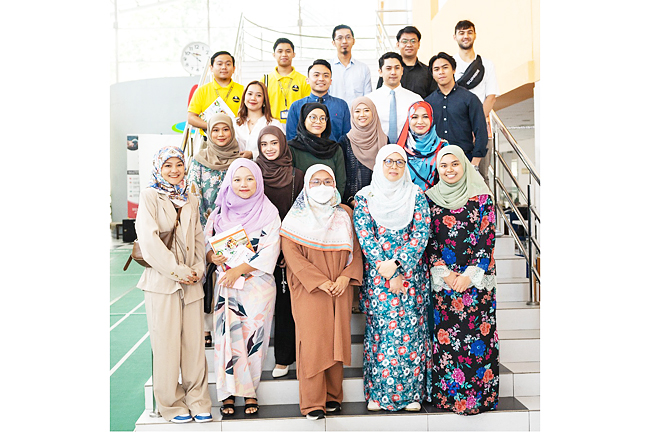Food marketing to children plays a role in their everyday diet as it influences their food choice, demand, purchase and consumption. According to the World Health Organization (WHO), irresponsible marketing of food and beverages contributes to childhood obesity.
Medical Officer Dr Hajah Norol Ehsan binti Haji Abdul Hamid said this during a briefing on the Code on Responsible Marketing of Food and Beverages to Children in Brunei Darussalam (CoRM) yesterday.
Some 22 local social media influencers attended the event.
The Ministry of Health (MoH) through the Health Promotion Centre hosted the briefing to engage with social media influencers on contributing towards creating a healthier food environment in the Sultanate.
Results from health screening programmes carried out by the School Health Services showed that 25.9 per cent of Years 1, 4 and 6 students were overweight or obese.
A survey conducted by the MoH in 2020 revealed that the majority of the food and beverages advertised to children in Brunei were unhealthy.

The survey also found that social media is the most popular platform used for advertisement of food and beverages in the country.
As of January this year, 94.4 per cent of people in Brunei were social media users, as per the Digital 2023: Brunei Darussalam Report from DataReportal.
Health Education Officer Wan Siti Suhana Syazwani binti Abdullah Suhaimi said that preliminary results on a study on food and beverages marketing show that the top three platforms seen or heard by parents for unhealthy food and beverage advertising are social media, billboards and radio commercials. For children, the top three platforms are social media, celebrities and posters or banners.
Meanwhile, the main types of foods and beverages advertised to children in the last month were fast food, carbonated drinks, ice cream and frozen desserts and milkshakes.
Wan Siti Suhana Syazwani said, “The establishment of the CoRM is to control the advertisement of food and beverages on all platforms including social media, targeting food and beverages companies and advertising companies, including social media influencers.“
She added, “The CoRM aims to reduce the impact of unhealthy marketing of food and beverages, to ensure responsible marketing of food and beverages, and to provide useful resources and reference.”
Social media influencers, she said, can contribute “by applying the CoRM to your posts and reviews, encouraging and advising your clients to apply to us for approval before advertisements, informing your clients regarding CoRM as well as including healthy messages in your social media posts and videos, promoting healthier choice logo and collaborating with us on activities that promote healthy eating and healthy lifestyles”.
Health Education Officer Rusydiah Haji Sudin added, “People are more likely to ‘like’, ‘comment’ and ’share’ unhealthy, calorie dense foods on social media.
“Children and adolescents have viewed marketing for food more than 150 times per week on social media, with fast food and sugary drinks being the most common.”
She said, “The power is in your hands to motivate the public to adopt healthier and more sustainable eating habits as well as create and post content that engages with people, encouraging them to digest science-based messages and inspire them to change how they consume food.”
It is hoped that following the session, local social media influencers will have a better understanding of their role in contributing towards creating a healthier food environment in the country, and support the MoH’s vision of ‘Together Towards a Healthy Nation’ and uphold Brunei Vision 2035 of ensuring better quality of lives for the people in the Sultanate. – James Kon



















































